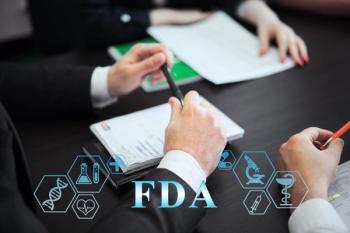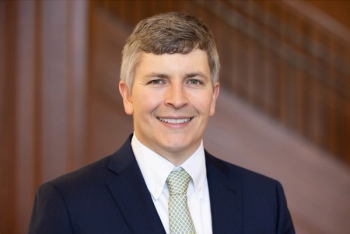
- Pharmaceutical Executive-06-01-2017
- Volume 37
- Issue 6
Tips for Success from a Big Pharma Leader
An honoree at HBA’s recent Women of the Year awards luncheon, Bahija Jallal’s story is one of courage and resilience.
Inspiring and passionate.
Those were the two most common ways Bahija Jallal, executive vice president of AstraZeneca and head of MedImmune, was described by her colleagues, employees, and friends during the Healthcare Businesswomen’s Association’s Women of the Year awards last month in New York City.
“She is smart and hard-working,” said Pascal Soriot, executive director and CEO of AstraZeneca. “Bahija is a true citizen of the world. She came to the US to change the world.”
Jallal, who grew up in Morocco, studied in Paris, worked in Germany and then in the US, was honored as the 2017 HBA Woman of the Year during a luncheon that drew 2,200 in-person attendees and many more watching via live feed at more than a dozen viewing parties across the world. We chronicled Jallal’s career
journey for our April issue
“Bahija is courageous and resilient,” said Soriot, before inviting Jallal to the stage. “She fights for what she believes in.”
Soriot went on to relay examples of how Jallal did this, noting that when AstraZeneca brought MedImmune into its portfolio in 2007, the translational sciences leader was faced with harsh critics, but she never let them get the best of her.
Many times Jallal was faced with people calling MedImmune a “money drain,” and as a result she would “put her job on the line many times,” Soriot added.
And every time, Jallal would prevail.
Success rooted in humility
“In my heart of hearts, I am a scientist,” Jallal told the ballroom filled with seasoned pharma executives as well as those aspiring to become the healthcare leaders of the future. “It has been an incredible journey of curiosity. Every answer leads to a new question.
“My dream was to figure out the answers to all my questions. I always followed my heart in my career decisions. I’ve never done a development plan or chased titles.”
Those questions, as Jallal told Pharm Exec for the April cover story, started when she was nine years old and her father went to a clinic in pain with a suspected kidney stone and never came home.
She shared several tips that have helped guide her success. First, don’t be afraid to fail.
“If you don’t fail, it means you’re not pushing innovation and science far enough,” said Jallal. “And, when you do [fail], be resilient. Dust yourself off, figure out what went wrong, and try again.”
Second, dream big.
“We can turn science fiction into science fact,” she said.
Third, get back to your roots.
“Remember, amidst all the ups and downs, and highs and lows, why we come to work every day,” said Jallal. “I followed science and followed my heart. Do not apologize for being smart, or following your passion.”
Her last bit of advice centered around what she likes to call the, “what will people think of me” syndrome.
“All too often we get stopped in our tracks in search of perfection,” she said. “By [doing this], we hold ourselves back. We don’t have to be perfect. No one is perfect.”
Unfinished business
Despite all of her accomplishments, Jallal said there is a lot more work to do. She explained that science has never been better when it comes to innovation and breakthroughs. “But too many patients still suffer from cancer, diabetes, asthma, and other diseases,” she added.
Other winners
In all, more than 30 women were honored as 2017 HBA Luminaries, and more than 60 were named 2017 HBA Rising Stars.
In addition, Joaquin Duato, worldwide chairman, pharmaceuticals, at Johnson & Johnson, received the Honorable Mentor award, and Ceci Zak, principal and COO of Batten & Co (a strategic consulting firm within the Omnicom Group) received the STAR award.
Michelle Maskaly is Pharm Exec’s Senior Editor. She can be reached at
Articles in this issue
over 8 years ago
Pharm Exec's Top 50 Companies 2017over 8 years ago
Navigating Through Disruption: A Pharma 50 Viewover 8 years ago
The Quest for Meaningful Pharma-Patient Dialogueover 8 years ago
Executive Roundtable: Where is Your Physician?over 8 years ago
Talent That Takes You into the Futureover 8 years ago
Europe: A Long Summer of Drug Pricing Tensionover 8 years ago
Gottlieb Takes Reins at FDA, Big Issues Loomover 8 years ago
Country Report: Taiwanover 8 years ago
Pharmaceutical Executive, June 2017 Issue (PDF)Newsletter
Lead with insight with the Pharmaceutical Executive newsletter, featuring strategic analysis, leadership trends, and market intelligence for biopharma decision-makers.




